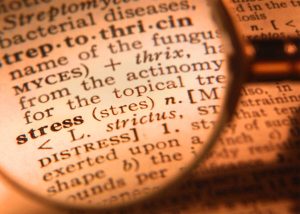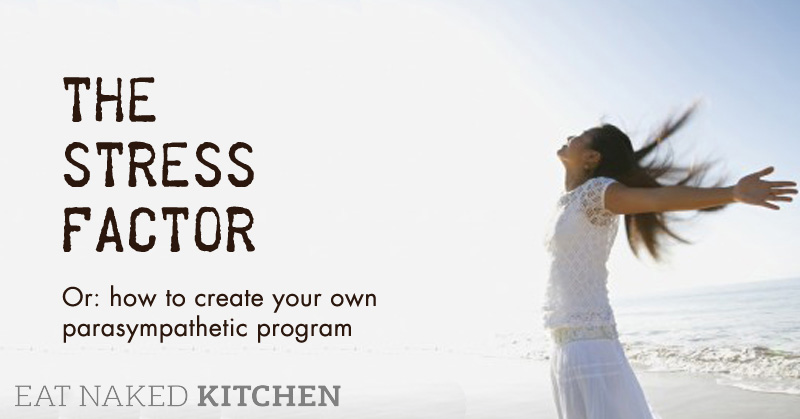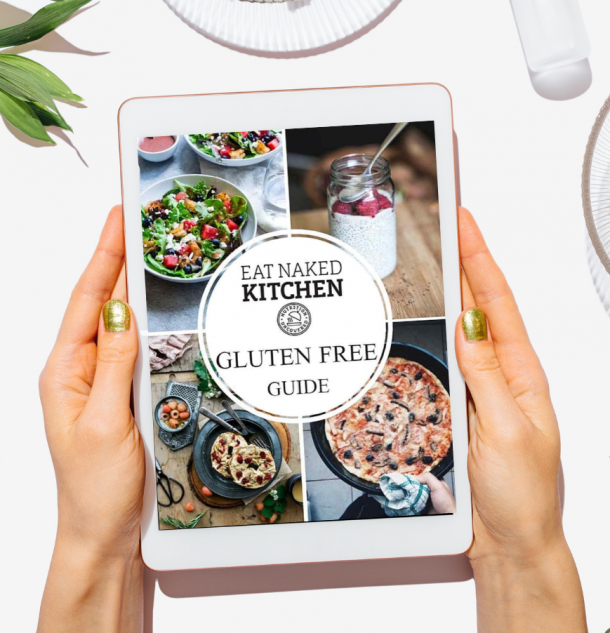 “How are your stress levels these days?” he asked.
“How are your stress levels these days?” he asked.
“Oh you know, they’re pretty high but definitely better than last year.” I answered.
“Are you meditating?” Not really. “Are you getting solid sleep?” Sometimes. “How are you refilling that cup?” I wanted to list off the things I was doing on a regular basis to keep myself in balance, but the truth was I was going and going until I’d crash and my body would force me to take some down time…
Sound familiar?
This was a conversation I had months ago with my acupuncturist. A skin condition I’d had from my teens through my early 20s and resolved completely at that time with a major change in my diet was suddenly, out of nowhere, reappearing.
Since my diet had such a major impact on my skin years ago, I started fiddling again. But this time, with no results. Kind of awkward for a nutritionist.
My acupuncturist is very wise and no stranger to the power of diet. One of the many reasons I go to him is that we share the same food paradigm and his starting point with many clients is dietary change. But this time, we’d moved past that point and he was dipping his toes in sensitive waters: my level of stress.
Stress. We’re all stressed. We live in a world that encourages and rewards stress. To stay out of this mode takes significant effort. Stress is so normal we blame everything on it and yet completely accept its inevitability. It’s just a fact of life, right?
Not so fast. At least, I hope not. Because stress is wreaking havoc on our bodies, minds, and overall wellbeing.
Let me give you a basic lesson in stress physiology. Our autonomic nervous system (that part of our brain that controls things we don’t have to consciously think about like breathing, digestion, healing, heart beating, etc) has two modes: sympathetic (stress – the fight or flight mode) or parasympathetic (relaxation). There is no gray area. It’s one or the other. If we’re not parasympathetic, we’re in sympathetic – stress – mode. It’s that simple.
Ultimately, when in stress mode, our bodies are preparing to fight for survival, and biochemically the things that need to happen in this context are very different from what we need on a day-to-day basis for our wellbeing.
Stress:
- Compromises our digestion. You could be eating the best, most naked diet in the world, but if you’re running high on stress, your body can’t do much with it. Stress slows our digestive system massively, causing digestive distress. This decreases nutrient absorption which in turn increases nutrient deficiencies, decreases gut flora, decreases immune function, and .. ahem .. increases skin problems.
- Messes with our hormones. All those hormones we want to have in good working order like our thyroid hormones, growth hormones, and reproductive hormones? They decrease under stress as our body prioritizes the production of stress hormones, particularly cortisol, which is, among other things, a fat-storing hormone.
- Increases oxidation and inflammation. Oh lovely. Let’s speed up the break down (aging) process even more and inflame it while we’re at it.
- Increases the “bad” numbers. You know, LDL (“bad”) cholesterol, triglycerides, heart rate, and blood pressure.
And I could go on, but you get the picture.
Here’s the catch: our bodies don’t know the difference between high anxiety over a pressing deadline and running from a woolly mammoth. So we mount the same response. Can you imagine the toll on our bodies if we had to run from woolly mammoths day in and day out? And yet, that’s exactly what we’re doing living in this chronic state of stress.
Last month I went on maternity leave about a month before the baby was due. I was still ‘working’, but at a much more leisurely pace. I spent time sleeping more, taking naps when I needed them, working when I felt inspired rather than pressing myself when things weren’t flowing, and I prioritized sheer downtime: taking more time to smell the roses, literally and figuratively.
And guess what. My skin condition disappeared. No change in diet (in fact, that month I indulged more than I was previously), no new supplement protocols, no other ‘therapeutic’ measures. Just a simple reduction in stress.
I realize it’s not practical for everyone to hop on leave to bring down their stress levels, but there are a few important lessons that I take from this and that we’ve already been implementing with clients to help them create their own “parasympathetic program.”
- What can you take out of your life that is causing you great stress? What can you say no to? Think of the things that are causing some of the most chronic stress (not even necessarily the highest stress, but the day to day, always there kind of stress). And think of life without them. Ahhh… relief, right? Now commit to taking the first step toward removing this stress from your life for good.
- What is something that feels really relaxing and nurturing to you that you can do on a daily basis? Maybe it’s meditation. Maybe it’s taking a 20 minute afternoon nap. Maybe it’s going for a walk with your dog at sunset. What it is isn’t important – it’s how it makes you feel. If it relaxes you, if you can do it daily, and if it won’t cause more stress by adding it into your life, then you’ve got it! Commit to adding this one nurturing activity into your daily routine.
- Repeat weekly. If you can slowly and surely weed out some of the greater stresses in your life while you build in more nurturing activities, you’ll find a balance point that allows you to keep up with your life’s many activities while staying predominantly in parasympathetic mode.
Share with us your parasympathetic program. Do you tend to run sympathetic (high-stress) or parasympathetic (low-stress) in your life overall? How do you keep your stress levels in check?




Thank you for your work. I LOVE your books. I wanted you to know about the Chopra Center 21-day free mediation challenge- today is day 3. It’s never too late to join in… meditationchallenge@chopra.com.
This is one of your best posts!!!
I too recommend the Copra Center’s 21-Day Meditation opportunity (I like to approach this as an “opportunity” rather than a challenge- either way, it’s a great practice).
Also, in my process of de-stressing I kept in mind/envisioned my life without the stress in all aspects. It starts in the most simplest of scenarios- driving in your car, for example. Why bring on unnecessary stress into your life? I believe this especially applies to LA natives; we spend loads of our lives in the car. Enjoy the ride! If you’re late, or not late, no need to follow suit of the other maniacs on the road; no need to get angry or tense. Look at all the effects this stress has on your body, written in this article. It’s so much more worth the ride if you are singing or consciously breathing and consciously traveling, keeping in mind the wonderful place you are heading to or just left… And then, of course – Repeat! 🙂
Inspiring and brilliant. Thanks for this post! I work for The Institute for the Psychology of Eating – our Founder, Marc David, has a kick-ass blog that I think you would really enjoy. There’s a great post on the blog that’s called Are You “Thinking” Yourself Into Physiologic Stress Response? – it relates to what you describe here in your post… Thank you for being part of a healthier way to relate to food and eating!